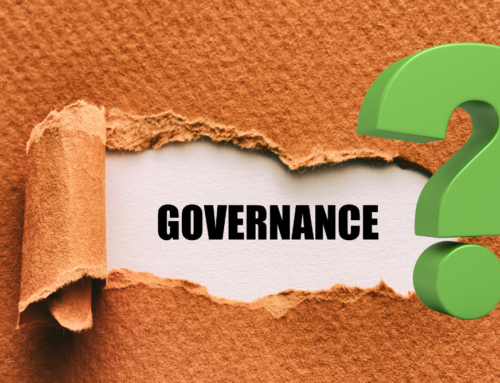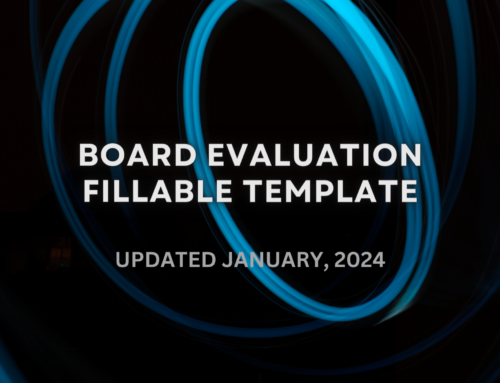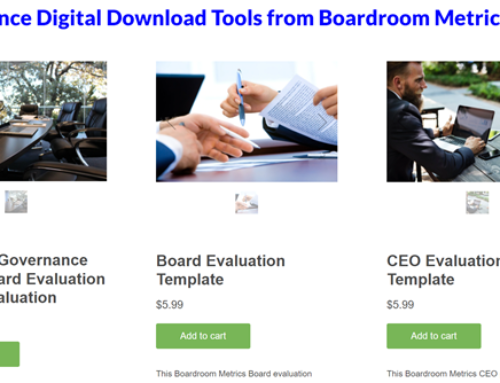Joining a non-profit Board of Directors
Let’s pretend that you are considering joining a non-profit Board as a Director or that you have been invited to be a trustee on a very well recognized foundation. What are your first thoughts? It’s important to keep in mind that there are no perfect charities, no perfect non-profits and no perfect non-profit boards.
Prospective non-profit Board members need to understand that they may have some questions as they evaluate the not-for-profit organization (NFP). The important part is to make sure a board is thinking about the right issues. It is extremely important that management and the Board of Directors can discuss, process and come to conclusions (and actions) in a positive and constructive manner.
Most likely you are there, or asked to be, because you are aligned with the mission or the values of the NFP. Secondly, you have a passion for the cause. You want to share your talents with the board. In particular, think about your set of questions against the backdrop of your board value and your contribution both of time and dollars. I have found from my research that the best NFP boards are ones that are clear in their mission, their values and how they carry out the strategy to accomplish the mission’s purpose.
Board Composition is a key consideration of a not-for-profit Board
Before you make your commitment, clearly understand the composition of the current Board of Directors. What are the responsibilities for the role you are being asked to take on? The toughest questions involve how the directors function with each other and with management. That gets to the heart of the culture of the organization. I have known certain boards to have a skills matrix that they follow when trying to fill a position on the board. When there is a high number of new board members, the culture maybe very different than it was 4-6 years ago.
Here are five questions I would start with before joining a non-profit Board of Directors:
- How capable and committed are other board members?
- Is there an “orientation” program to bring new directors up to speed?
- What about board governance education requirements?
- How do members stay abreast of the latest trends? This would include being up to date on new legislation such as the new Canada Not-For-Profit Corporations Act (CNCA)?
- What are existing board members’ views on management? If they have strong views, does this change the dynamics of how decisions are made?
The Board’s relationship with management is another key consideration
These relationships should be based upon mutual respect and a willingness to listen and consider different experiences. Pay close attention to how these questions are answered.
Here are three additional questions you might consider when assessing the relationship between the board and management:
- How does the management go about reinforcing the values of the NFP?
- Have you considered the relationships between board members and other members of executive management?
- Is there open dialogue and proper respectful discourse? How are differences resolved?
Management naturally might be wary when answering these types of questions. It is best to understand what is appropriate to ask, what discussions have taken place in the past and how it’s followed and by whom. I always seek out the person with the most institutional memory on the board or about the NFP to assist in answering those types of questions.
It would be helpful to know if the management team attends your board meetings occasionally to provide insights, updates or clarity. At least once a year, one meeting should include all management and board members for a social get together. These types of meetings allow you to talk about common interests and ask questions more on a personal basis.
Keep an open mind when joining a non-profit Board of Directors.
It is best to keep an open mind. Remember, there are no perfect charities, no perfect NFPs and no perfect boards. Prospective not-for-profit board members need to understand that they will find some issues as they evaluate any organization. The important part is to make sure the board is thinking about the right issues and that management and the board can discuss, process and come to a conclusion (and actions) in a positive and constructive manner. This type of due diligence is a best practice of good governance when joining a board.
This blog post was originally written by Tim Herron in 2014. It was updated by Jim Crocker in 2019.








Thanks for helping people consider board service carefully before saying yes!
But I would also ask what impact the organization is having on its community. There’s no point joining a organization that can’t point to how the community is better because it exists. If they talk of increasing needs and resource scarcity, there is probably a more forward-looking organization around to give your time to. Or join this one – but to transform it, not maintain it as is.